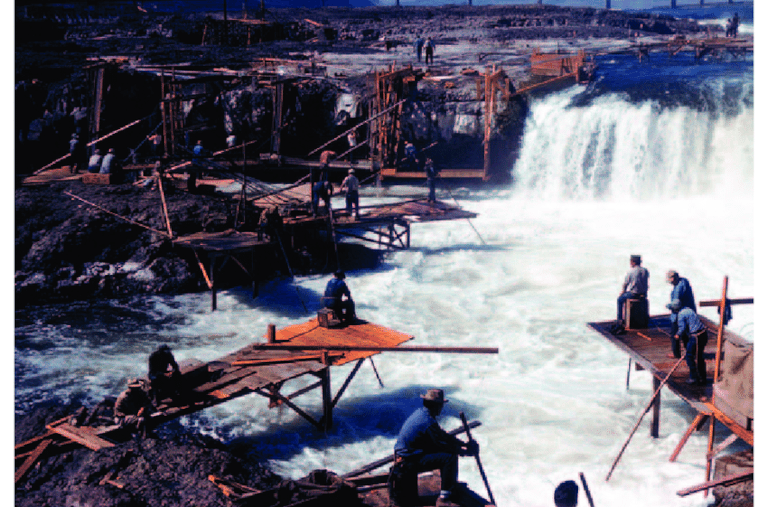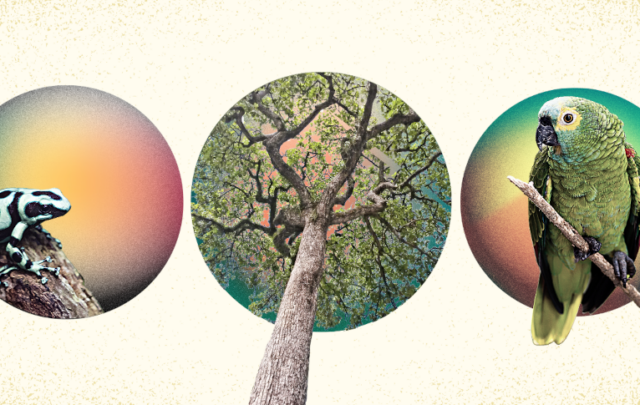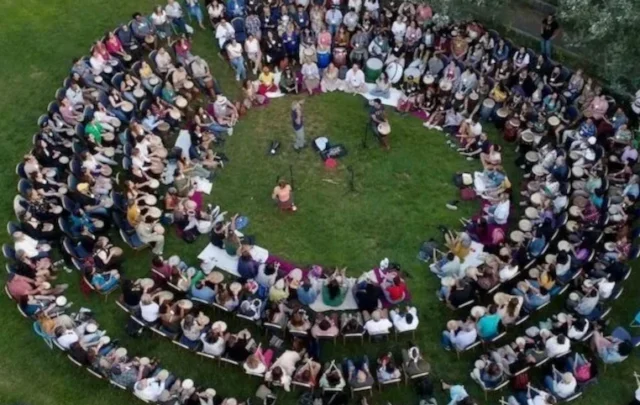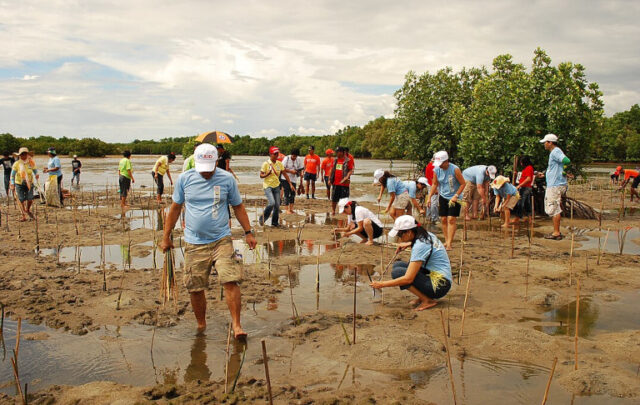Contribution to GTI Forum Big History and Great Transition
As an academic historian and critical theorist, I find the Big History (BH) paradigm deeply problematic. Like all mainstream historical practice, BH assumes that human lives, past and present, have all been lived in one and the same world of experience, namely the “objective” world seen by our modern sciences rather than a “pluriverse” of many different worlds. As I suggest below, a decolonized pluriversal history would encourage us to tell stories about the past, present, and future which are very different from BH’s universalist story. You can decide for yourself which kind of story is more meaningful and/or more conducive to a Great Transition.1
Over recent decades, a new and very different way of thinking about reality has been supported by activists, artists, and academics in a range of fields, from anthropology to science studies.2 In this account, reality is neither something material that exists “objectively,” independent of human minds, nor something purely ideational that exists wholly within those minds. It is rather best seen as the ongoing effect of a self-evident world. This complex materio-cultural effect is realized in experience whenever the planet’s human and nonhuman constituents cooperate to produce stable, equilibrial ways of life. Some now call this process “worlding.” Here’s a way to think about it.
Every human community stakes its life on certain truths about the essential contents of experience, on shared certainties about, say, human nature and the meaning of personhood, about how to relate to other-than-human beings and things, about the fabrics of the lived environment and how they came to be there, and about the sources, means, and ends of life itself. As these truths become tried and tested in practice, they together form something like a commonsense “model” of the world to live by. This model is duly hardwired into the minds and bodies of community members, into their life-sustaining norms and mechanisms, and into their built environment, shaping their relations with one another and with all the nonhumans on whom their existence depends. As the community successfully reproduces itself across the generations, this model is thus continually and unconsciously enacted in everyday life. And the effect of a self-evident world is thereby realized in experience, a world that seems to have been there all along.
In other words, reality is something historically variable, not something eternally fixed. Given that human communities have lived by a wide range of different truths across time and space, they have enacted a wondrous array of different worlds, none of them more universally real than any other. To make any meaningful sense of past ways of life, one would then have to analyze each one in its own local world of experience, according to its own enacted truths of being, not those of modern Western science. In short, one would need to decolonize historical practice.
When one begins to practice a pluriversal history along these lines, certain patterns soon emerge. For all their differences, visible and invisible, the worlds enacted by the vast majority of history’s humans share certain basic metaphysical commonalities.
Whether one thinks of, say, a Greek polis ecology of gods, land, and people; a medieval European Great Chain of Being; the alignment of an earthly with a heavenly realm in imperial China; or the multi-species genealogies of Maori tribes, history’s many worlds are typically self-sustaining life systems that are anchored to particular lands. Being in these systems is always relational, since all things at once depend on and contribute to the life of the whole. As they maintain vital symbiotic relations with others, humans come to share the faculties of personhood with those others, whether they be gods, spirits, animals, plants, or even things we now consider inanimate. Being human thus means being respectful and accountable to other-than-human persons, if the system is to remain in balance. It also means accepting one’s humble place in the larger order of things, since nonhuman and/or superhuman persons have special powers and knowledges that humans can never possess.
But one kind of world does not share any of these metaphysical commonalities. This is the “objective” world of our own European-style modernity, which is everywhere at once and nowhere in particular. Only in our materialist kind of world is being primordially individual not relational. Only in our individualist kind of world do all things, humans included, exist ultimately for themselves as free-standing entities, not as components of an all-inclusive system of life. Only in our anthropocentrist kind of world do humans monopolize subjectivity, agency, reason, and all other faculties of personhood, consigning all nonhumans to a subordinate order of “nature.” And only in our secularist kind of world are humans unaccountable to beings more powerful than themselves, since no such beings exist. If there is any god involved at all, it is the strangely detached Christian god, who apparently gave us god-like powers to know all his Creation and do with it as we pleased.
Of course, these modern European-style truths will seem “right” to us, because they are baked into the very tissues of our minds, our bodies, and our way of life. We continually enact them as a world through the everyday routines of our techno-scientific capitalist order. At the same time, the life-sustaining truths of non-modern worlds, with all their gods, spirits, and nonhuman persons, will seem “primitive” or just plain “wrong,” because they violate our materialist “laws of science.”
Yet it is undeniable that countless human communities who have staked their lives on these kinds of “wrong” truths have managed to reproduce themselves successfully, sometimes for hundreds, if not thousands, of years. And it is also quite clear that they have done so without inflicting catastrophic damage on the planetary fabrics. In short, their worlding processes have generally been sustainable.
The same clearly cannot be said of our own modern worlding processes. For all the technological marvels they may have produced, they have also imperiled the whole future of the planet in just a few hundred years. Along the way, they have stoked and unleashed forces which have caused all manner of horrors: genocides and ethnocides across entire continents, the exploitation and racist dehumanization of numerous colonized and enslaved peoples, the nightmares of industrial servitude, two monumentally destructive world wars, the Holocaust, nuclear weapons, epidemics of mental illness and drug addiction, open-cast mining and factory farming, species extinctions and ecological devastation, and, of course, the whole age we now call the Anthropocene.
Clearly, a universalist Big History and a decolonized pluriversal history would tell two very different stories about how humanity has reached this tragic conjuncture.
As far as one can tell, BH’s “history of all humans” would still largely be a familiar Eurocentric metanarrative of “progress.” A secular materialist story of ever growing human “creativity” and “ingenuity,” it would culminate inevitably in the wonders of a techno-scientific capitalist modernity, which has apparently “improved the lives of billions of people.” Of course, BH would not ignore “the grave existential threats we face today,” like global warming. But in its anthropocentric account, even these would be a product of “our exceptional creativity,” which will surely in turn “find many novel solutions” to such problems. Since Big History, like its Big Science ally, perpetuates the modern metaphysical common sense which has brought us to this conjuncture, it just remains unclear from where those solutions might come.
By contrast, a decolonized pluriversal history would not take that modern common sense for granted. Nor would it be looking all the way back to early life on Earth to find the origins of the current existential crisis. Instead, it would be looking squarely at the gigantic rupture in the history of planetary life which began just a few centuries ago, when European elites started imposing their experimental new ways of worlding all over the globe.
Before that rupture, a pluriversal history would see countless human communities collaborating reciprocally and respectfully with the planet’s nonhuman fabrics, however conceived, enacting a multitude of relatively sustainable worlds in the process. After that rupture, it would see the wanton destruction of history’s pluriverse through the forces of imperialist domination, settler colonization, and the globalizing capitalist “development” which continues to this day. It would see the replacement of numberless relational realities with a single atomistic reality, one that is founded on ontological divisions between culture and nature, secular and sacred, public and private, European and non-European “races,” and one human individual and another. It would see the violence inflicted on all things nonhuman by the science-enabled processes of industrialization, hydraulic engineering, fossil fuel combustion, monocultural agriculture, and so on. And it would see the symptoms of the Anthropocene age as nonhuman resistance to modern ways of worlding by the planetary fabrics themselves.
A pluriversal history would thus encourage us to look to the relational “ingenuity” of non-modern worlds, both extinct and extant, for guidance about how to live more sustainably. At the same time, it would support the cause of bioregional “localization” over any one-size-fits-all globalization.
Which of these two stories do you find more meaningful and/or more useful?
1. Of course, an adequate case for a radical “many worlds” historical practice cannot be made in a short essay. A fuller case is made in Greg Anderson, The Realness of Things Past (New York: Oxford University Press, 2018).
2. For a brief bibliography of works that are broadly aligned with the ideas presented here, see https://drive.google.com/file/d/1hVa2w-0bTWFSJI7Use3ujmKZHT2AzOq7/view?usp=sharing.





